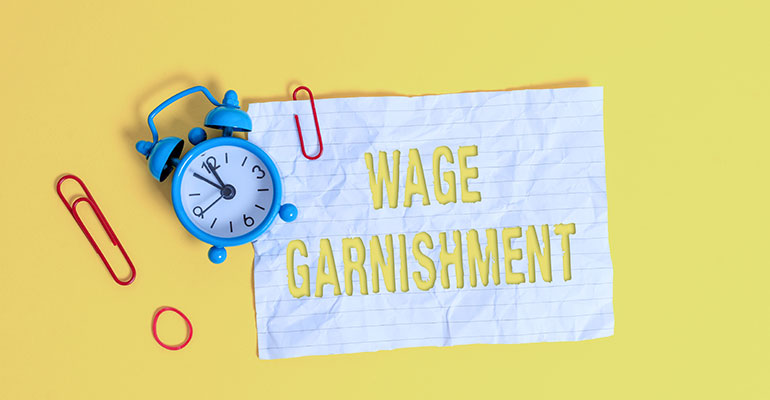
Wage garnishment is a legal procedure where a creditor obtains a court order to collect a debt from an individual’s wages or salary. Once a wage garnishment order is issued, a portion of your paycheck will be withheld and sent directly to the creditor until the debt is paid off. This can be a significant financial burden for many individuals and may leave them struggling to make ends meet. In this post, we will discuss how to stop wage garnishment immediately.
Understand Your Rights
Before taking any action to stop a wage garnishment, it is important to understand your legal rights. The Consumer Credit Protection Act (CCPA) is a federal law that limits the amount that can be garnished from your wages. In accordance with this law, your employer may deduct a maximum of twenty-five percent of your disposable income or, in the event your weekly income is less, the amount by which your income exceeds 30 times the federal minimum wage. Furthermore, the CCPA safeguards you from losing your job as a result of wage garnishment.
Communicate with Your Creditor
In many cases, creditors are willing to work with individuals to find a solution that works for both parties. If you receive a notice of wage garnishment, contact your creditor immediately to see if you can work out a payment plan or settle the debt. In some cases, they may be willing to stop the wage garnishment order if you agree to make regular payments or pay off the debt in full.
File for Bankruptcy
Filing for bankruptcy is a legal process that can stop wage garnishment immediately. When you file for bankruptcy, an automatic stay is put in place that prevents creditors from taking any collection actions, including wage garnishment. However, bankruptcy should be considered as a last resort, as it can have serious long-term consequences on your credit score and financial standing.
Claim an Exemption
Certain types of income and property are exempt from wage garnishment. If you believe that the wage garnishment is taking more than the legal limit or is affecting exempt income, you can claim an exemption. Each state has its own exemption laws, so you should consult with a bankruptcy attorney or legal aid organization to determine if you qualify for an exemption.
Some examples of exempt income may include social security benefits, workers’ compensation, or public assistance. Property exemptions may include a primary residence, a certain amount of personal property, or tools of your trade. It is important to understand the specific exemption laws in your state, as they can vary widely. Seeking legal advice can help ensure that you are properly claiming any exemptions that may be available to you.
Negotiate with Your Employer
Your employer is required to comply with a wage garnishment order, but they may be willing to work with you to reduce the impact on your finances. If you are facing financial hardship, speak with your employer to see if they can exempt a portion of your income from the garnishment order. Alternatively, they may be willing to delay the garnishment or work out a payment plan that allows you to keep more of your paycheck.
Seek Legal Assistance
If you are unable to stop the wage garnishment on your own, you may need to seek legal assistance. A bankruptcy attorney or legal aid organization can help you understand your legal rights, file an exemption claim, negotiate with your creditor or employer, or file for bankruptcy if necessary. They can also represent you in court if you need to challenge the wage garnishment order.
Make a Lump Sum Payment
You might be able to stop the wage garnishment right away if you can come up with a lump sum payment. Contact your creditor to see if they are willing to accept a lump sum payment in exchange for stopping the garnishment order. Be sure to get any agreement in writing and keep copies of all correspondence and payments.
Challenge the Garnishment Order
If you believe that the wage garnishment order was issued in error, you may be able to challenge it in court. Common grounds for challenging a garnishment order include improper service, mistaken identity, or the creditor’s failure to follow proper legal procedures. If you decide to challenge the garnishment order, it is important to seek legal assistance to ensure that you follow the proper procedures and meet all deadlines.
You will need to file a motion to quash or vacate the garnishment order and provide evidence to support your claim. If the court agrees with your challenge, the garnishment order will be stopped.
Wage garnishment can be a stressful and financially burdensome experience, but there are ways to stop it. It is important to understand your legal rights, communicate with your creditor, seek legal assistance, engage help from tax resolution/consultation services and explore all options before making any decisions. By taking action immediately, you can reduce the impact on your finances and regain control of your financial situation.
